Watching the Top 100 Highest-Rated Movies: #16-20
In this installment of our challenge to watch the top 100 highest-rated movies of all time, we watch and rate movies ranked #16 through #20.

Ah, we are in the endgame now. For the final 20 movies in The List, I'm going to switch to publishing these posts every five movies (instead of 10). Enjoy!
#20. Sweet Smell of Success (1957)
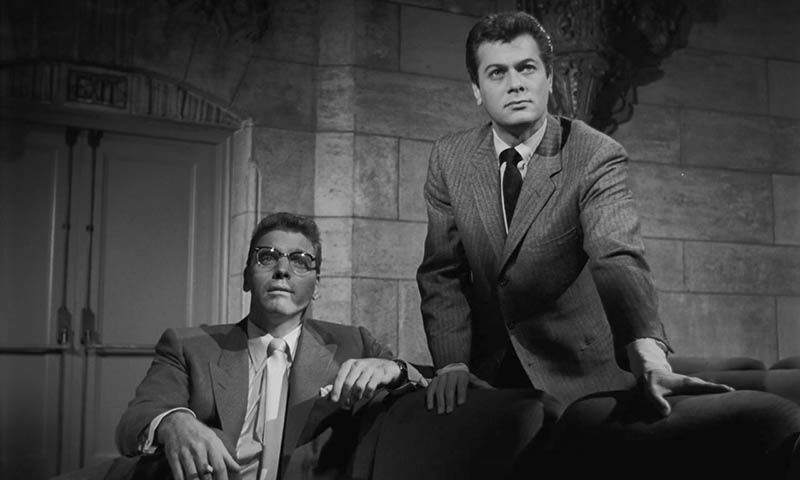
Directed by Alexander Mackendrick
Screenplay by Clifford Odets, Ernest Lehman, Alexander Mackendrick (uncredited)
Based on Tell Me About It Tomorrow! (1950 novelette in Cosmopolitan) by Ernest Lehman
Starring Burt Lancaster, Tony Curtis
Did we like it? 👎
Would we watch it again? 👎
This is the second movie on The List starring Tony Curtis (the first being #23: Some Like It Hot (1959)), and wow, what a difference: there was no whimsy and fun in this one; it was schemes and gloom. Overall, we didn't like it very much, but then again, neither did most people when it was released and it wasn't considered a critical success until much later.
In some ways, this movie reminded me a bit of the John Wick series. You know how John Wick exists in this alternate reality where sophisticated assassins are all hiding in plain sight, and there's this noir-ey neon-soaked underworld where they all convene and battle? Sweet Smell of Success is kinda like that, except instead of assassins, you have... syndicated newspaper columnists? The idea is kinda cool – everyone's tiptoeing around J.J. Hunsecker with hopes that he might recognize them positively and in terror that he might condemn them.
Ok, so it's not actually very cool, but hey, I'm trying here.
The only other thing I'll say is that this is supposedly Vince Gilligan's favorite movie, which is why there are a few Breaking Bad episodes with names taken from quotes in this movie. So, there you go, one fun fact for the road.
#19. Metropolis (1927)
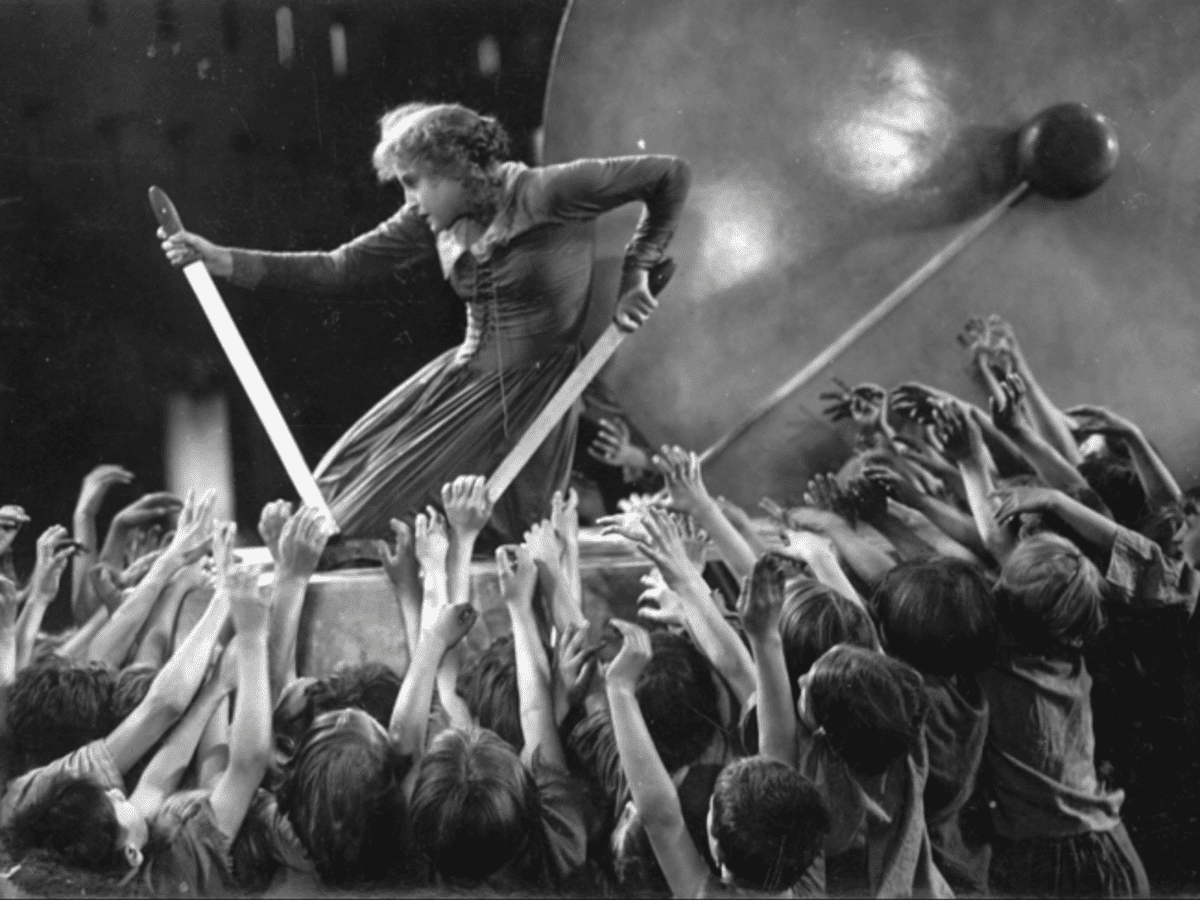
Directed by Fritz Lang
Screenplay by Thea von Harbou
Based on Metropolis (1925 novel) by Thea von Harbou
Starring Alfred Abel, Brigitte Helm, Gustav Fröhlich, Rudolf Klein-Rogge
Did we like it? 👎
Would we watch it again? 👎
Ah, we are once again spending time with Mr. Fritz Lang, who we last met in #28. M (1931). Woof. This was a rough one, but there's a silver lining, I promise.
Ok, let's start with some good stuff: It's 1927, and you just made a long, pioneering science fiction silent film. That alone is a feat, and its art direction, special effects, and cinematography were all impressive, especially for the time. It's also one of the first feature-length science fiction movies, ever, so that's pretty cool. And that, uh, robo-Maria dance scene? Well, that was one of the weirder things I've seen, so I guess I'm appreciative of that too because it is still haunting me.
The bad: It was way too long. I'll get into some of the crazy restoration stuff in a bit (trust me, it's interesting), but yikes - at two-and-a-half hours, its content and story nowhere near justified its length. We were both struggling to stay focused (and awake!) towards the end, so I can understand why subsequent releases of this movie chopped it down to less than half as long.
The interesting: Ok, so my favorite parts about this movie are the things I learned afterwards. While watching the movie, there were some dramatic visual quality variations in several scenes. For example, here's a still from a good quality scene:
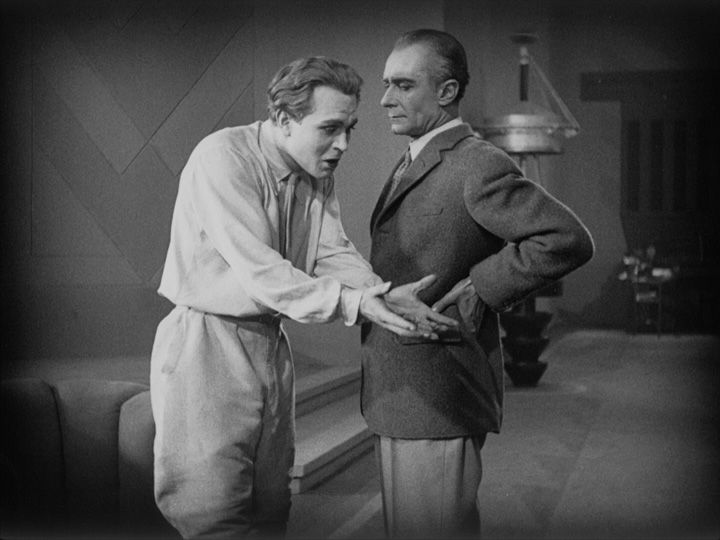
And here's another still from that exact same movie:
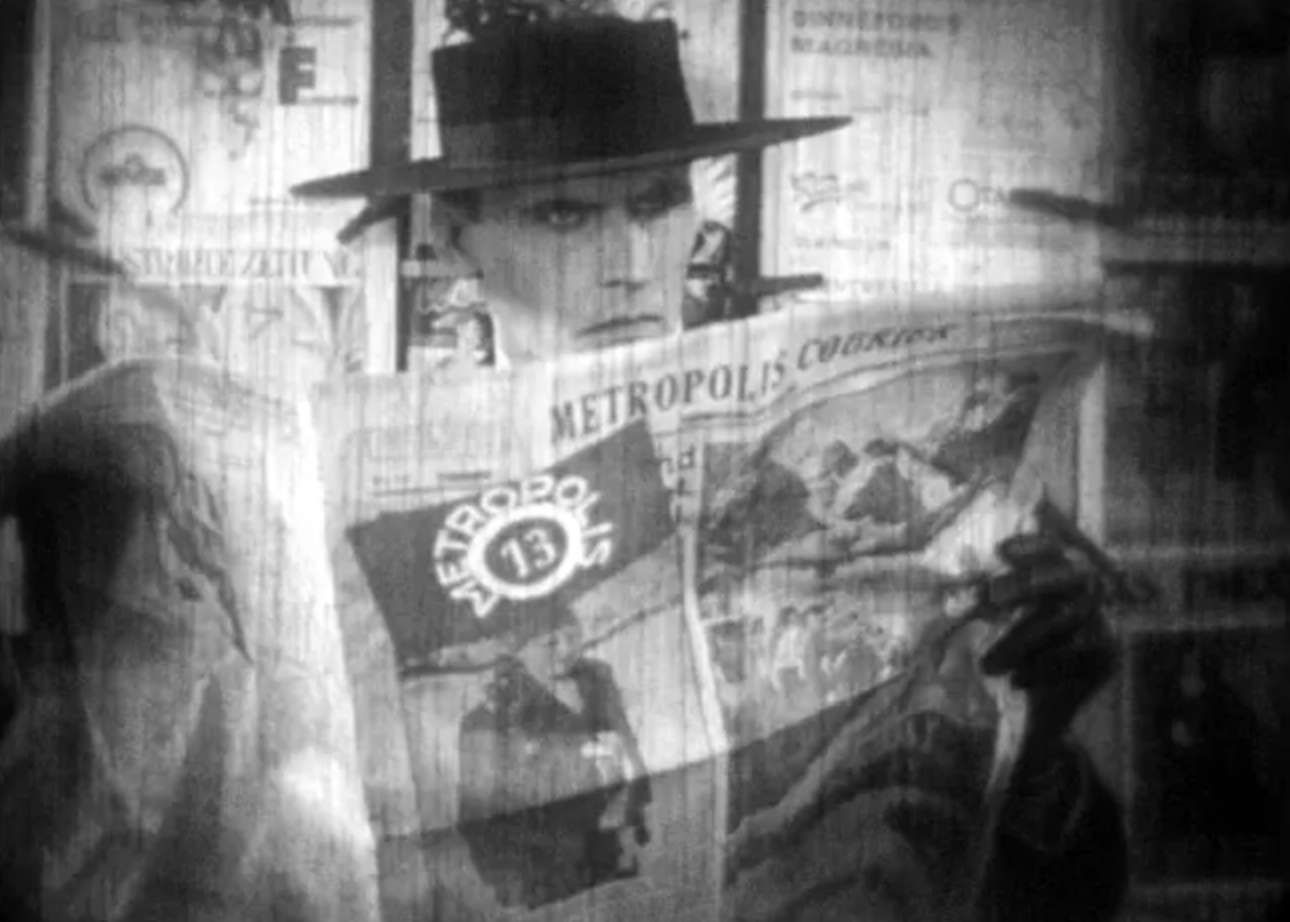
Crazy, right?
Well, it turns out that after its poor initial reception in Germany, Paramount and MGM leveraged their rights to modify the movie in an attempt to increase its profitability, so they made massive cuts to the film - so massive that entire main characters disappeared, and thus further edits had to be made so that the story continued to make sense without them.
Poor Fritz Lang was devastated:
I love films, so I shall never go to America. Their experts have slashed my best film, Metropolis, so cruelly that I dare not see it [...].
- Fritz Lang on the edited version of Metropolis
What followed was edit after edit, and the crazy part is that, because they were physically cutting the film and throwing away or damaging the discarded material, the original version of the movie that Fritz Lang created was essentially lost. Seriously, until recently, all versions of this movie in existence had been produced from a 91-minute English cut that was archived at the Museum of Modern Art in 1936.
Here's where it gets really crazy: In 1984, Giorgio Moroder (you know, that guy from that great Daft Punk song) paid $200,000 (over $500,000 in modern dollars) for the the rights to the film. Oh, and he had to outbid David Bowie, so you know, just the usual 1980s stuff. He originally planned to only add a new soundtrack to the movie, because the original score had been lost since its original premiere, but after he learned that there was no authoritative copy of the film, he ended up attempting a full-blown restoration of the film which was the most complete version until recent times. In Moroder's version, he composed original music himself and added songs from popular artists like Freddy Mercury and Pat Benatar. The whole thing ended up being a huge flop, but was nonetheless impressive.
And then finally, some resolution: Another restoration was attempted in 1986, where researchers found German censorship records of the original film (because the Nazis had further censored the film after it already went through multiple earlier cuts) which gave them the text to restore the silent film's intertitles, plus some photographic stills that they inserted into the film to take the place of missing scenes.
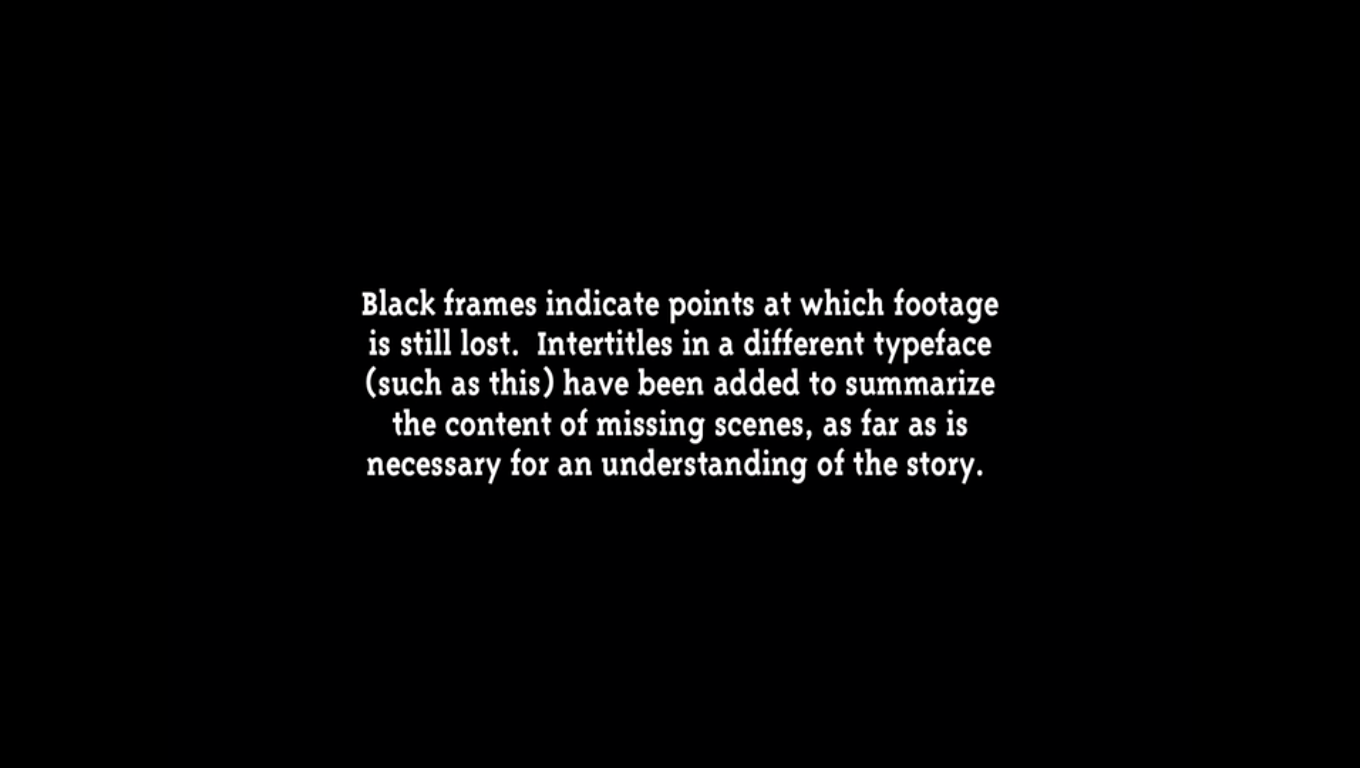
Then in 1998, additional previously-unknown parts of the film were discovered in several different museums, and the film was cleaned and restored to the best of their ability, increasing its length to 124 minutes and recording a new score. Then in 2008, researchers discovered the mother lode: a reduction negative of the original cut was discovered in Argentina, which had been made as a backup in either the 1960s or 1970s. A new score was recorded from the original sheet music, and after decades of work and multiple painstaking restorations, it produced the 148-minute version of the film that we watched and had the audacity to almost fall asleep during. The nerve!
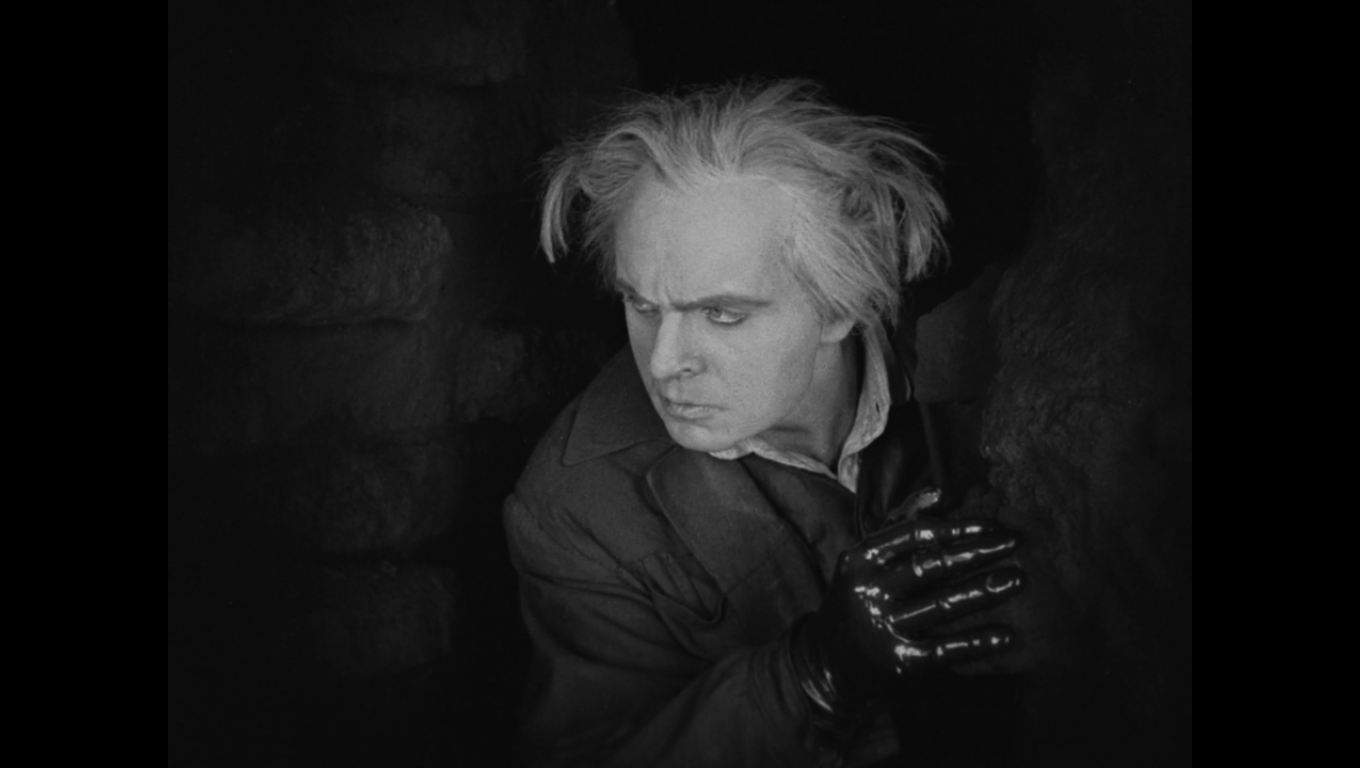
The current version of movie still isn't 100% complete - there was at least one scene that was missing in the version we watched, which was instead replaced by a intertitle describing what happened in the scene. But wow, what a journey.
So, while I definitely wouldn't watch this one again, I have a far deeper appreciation for the tenacity of film preservationists. And for Giorgio Moroder, I suppose – seriously, that guy is awesome.
I guess the moral of the story is: you should always back up your work, and for good measure, you might want to put an extra copy in a film canister in Argentina.
#18. Spirited Away (Japanese: 千と千尋の神隠し) (2001)
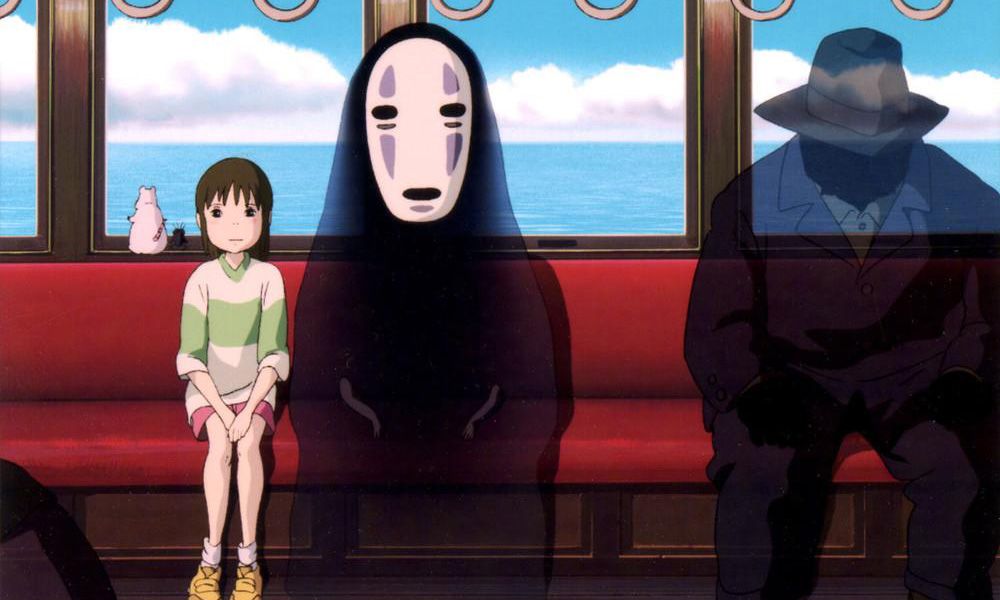
Directed by Hayao Miyazaki
Written by Hayao Miyazaki
Starring Rumi Hiiragi, Miyu Irino, Mari Natsuki, Takeshi Naito, Yasuko Sawaguchi, Tsunehiko Kamijō, Takehiko Ono, Bunta Sugawara
Did we like it? Evan: 👍, Sarah: 🤷♀️👍
Would we watch it again? Evan: 👍, Sarah: 👎
This was our first time seeing a Miyazaki film, and I think this was the first non-CG animated film on The List. I've heard people waxing poetic about Miyazaki films forever – most recently, I watched Patrick H Willems, one of my favorite movie essayists, correlate a different Miazaki film Kiki's Delivery Service (1989) to his own struggles with burnout – so I was definitely looking forward to this one.
Spirited Away tells a surreal fantasy story about a girl named Chihiro and her family who get lost in a bizarre amusement park which is full of all kinds of mystical and eccentric spirits. Trouble immediately arises, and Chihiro must work with her new friends to save her parents and escape. It's kinda a surreal-adventure-in-nightmare-Disneyland-type situation.
Overall, we liked it. I enjoyed it more than Sarah (mainly because she's not really into animated films) but most of all, I liked the positive and redemptive sentiment that imbued the story. Even though there are plenty of grim and scary elements, I felt this movie carried a strong sense of optimism and I felt pretty darn good after finishing it.
Was it super weird? Yes. Were there classic Miazaki food expositions? Yes. Did a giant baby get transformed into an adorable, chubby little mouse thing? Yes.
#17. Children of Paradise (French: Les Enfants du Paradis) (1945)
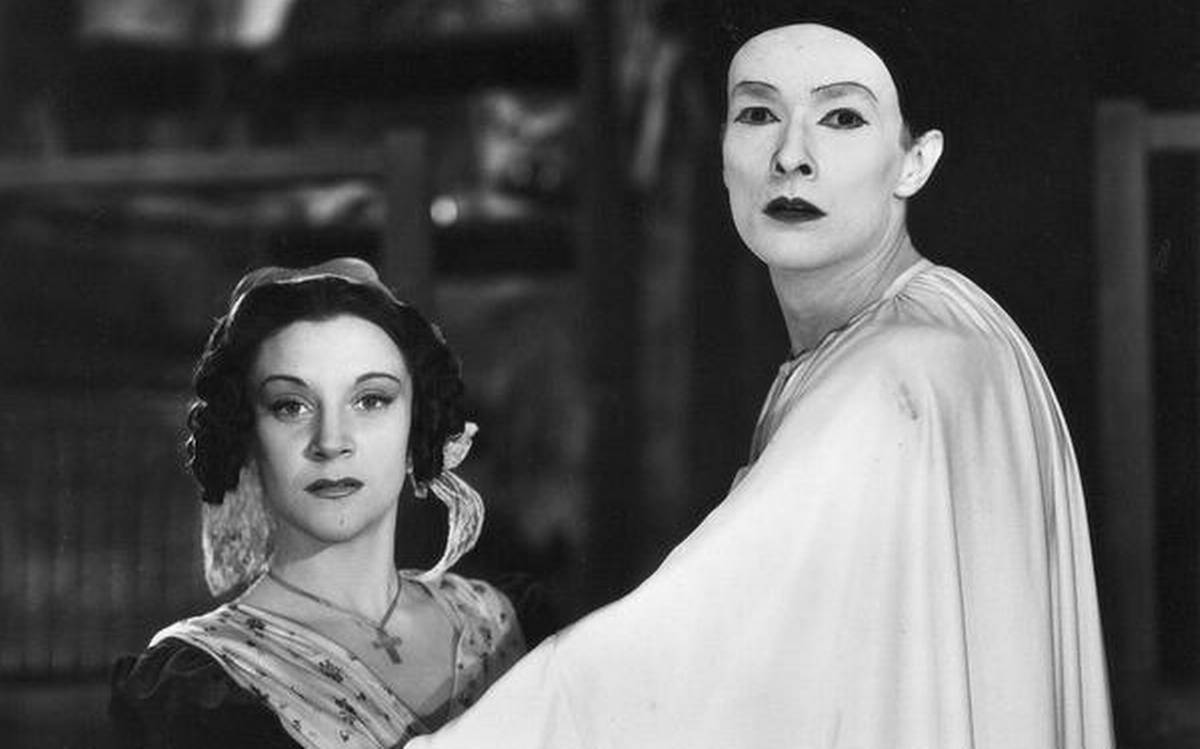
Directed by Marcel Carné
Written by Jacques Prévert
Starring Arletty, Jean-Louis Barrault, Pierre Brasseur, Marcel Herrand, Pierre Renoir
Did we like it? 🤷♂️👎
Would we watch it again? 👎
Les Enfants du Paradis is a two-part 3+ hour French film that tells the story of Garance, a courtesan who inadvertently enthralls four different men – an actor, a mime, an aristocrat, and a criminal – who all vie for her affection in different and complex ways. This movie was apparently positioned as France's response to #52. Gone with the Wind (1939), and our old buddy Marlon Brando, who later tried his best to derail #43: Apocalypse Now (1979), told Truman Capote that it might be the best movie ever made.
As with most films of exceptional critical acclaim, we didn't love it, with our main complaints being that it was way too long and neither of us really love whatever this genre of romantic tragedies is called.
Nonetheless, I can't resist sharing a few interesting tidbits:
Among its many difficulties during production, this movie also managed to be produced during the German occupation of France during WWII. It thus encountered the usual production hiccups like delays due to the Allied forces invading Normandy, oh and one of the actors fled the country after liberation because he was convicted of conspiring with the Nazis. (Not to worry, of course, because he was replaced by the son of the acclaimed painter Renoir. Seriously, the mid-1900s were wild times.)
On top of that, Nazis temporarily forbade the movie's producer from working on it due to his remote Jewish ancestry, sets were destroyed by bad weather, film stock had to be rationed, and the director of photography was replaced during filming due to schedule conflicts and the new guy had to look at scenes that were shot out of order on film reels using a magnifying glass to figure out the proper lighting for each scene as the electricity in his studio flickered on and off. I kinda felt bad for Coppola after seeing how difficult things were when shooting #43: Apocalypse Now (1979) in the documentary Hearts of Darkness: A Filmmaker's Apocalypse (1991), but sheesh, at these those problems were generally of his own making.
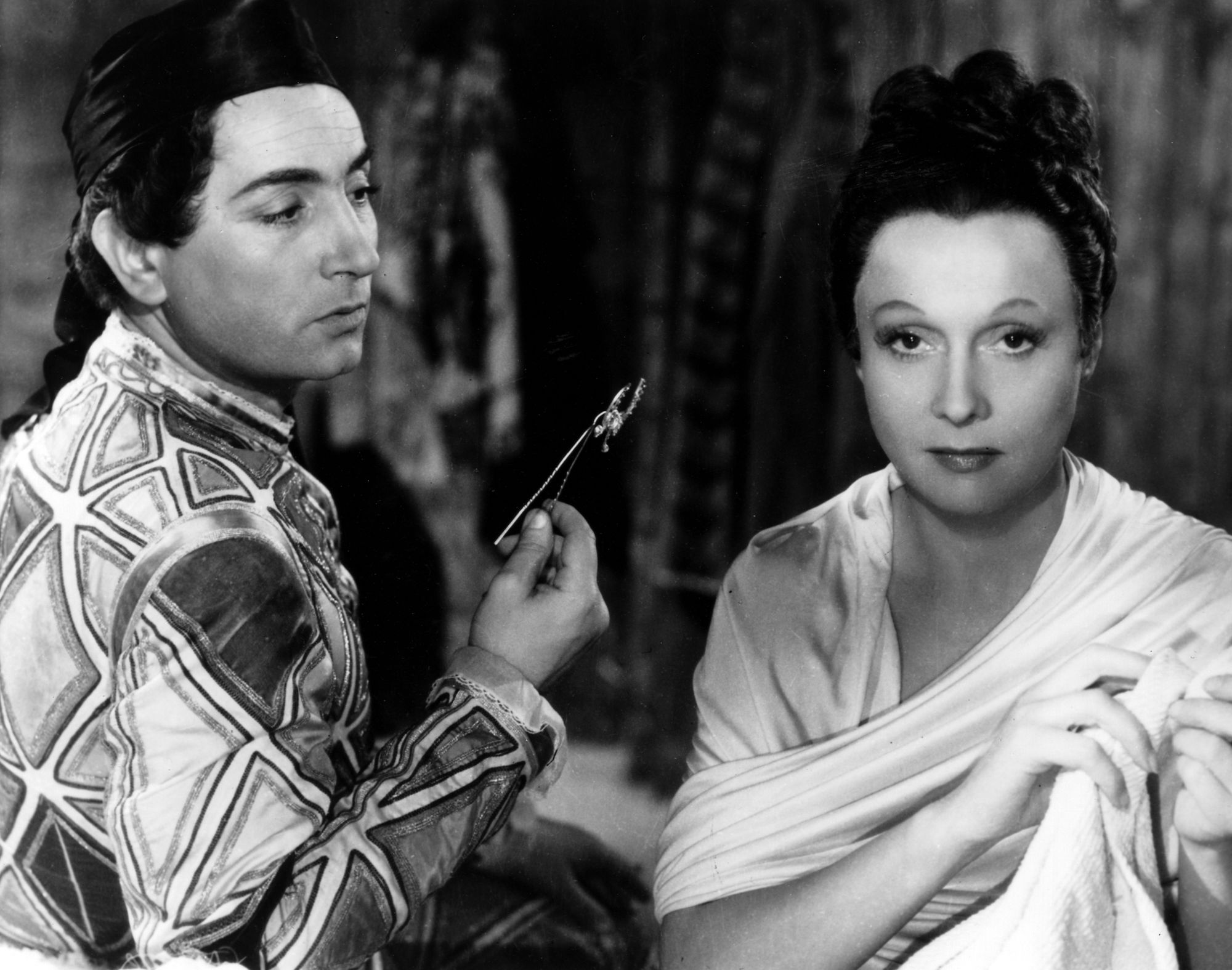
I will say this: I think we liked the more towards the end. The characters were quite interesting – I especially enjoyed Baptiste, although he sure did Nathalie dirty – and given all of its constraints, it's pretty amazing that this movie turned out as good as it did.
I'll end with two quotes that really stood out to me:
Garance: Listen to the Gods! I used to laugh like that once. I'd burst out laughing, just like that, without thinking. But nowadays- ...
Frederick: You're sad.
Garance: No, but I'm not cheerful either. A spring broke in the music box. The tune is the same, but it's in a different key.
And this must be the inspiration for that Pagliacci joke in Watchmen:
Baptiste: I even saw a doctor to make them happy.
Mme Hermine: What did he say?
Baptiste: That I was fit as a fiddle. "Mild depression, overwork. It's nothing."
Mme Hermine: And his prescription?
Baptiste: "Go see Baptiste."
#16. Dr. Strangelove or: How I Learned to Stop Worrying and Love the Bomb (1964)

Directed by Stanley Kubrick
Screenplay by Stanley Kubrick, Terry Southern, Peter George
Based on Red Alert by Peter George
Starring Peter Sellers, George C. Scott, Sterling Hayden, Keenan Wynn, Slim Pickens, Tracy Reed
Did we like it? Evan: 👍, Sarah: 🤷♀️👎
Would we watch it again? Evan: 👍, Sarah: 👎
I was looking forward to this one – I've enjoyed several of Kubrick's other films, and a few of my friends cite this movie on their list of personal favorites – and it did not disappoint. This movie tells the story of a US Air Force general who goes rogue and single-handedly instigates a nuclear strike on a foreign power, and the multiple comedies-of-errors that ensue (did I get that plurality right?).
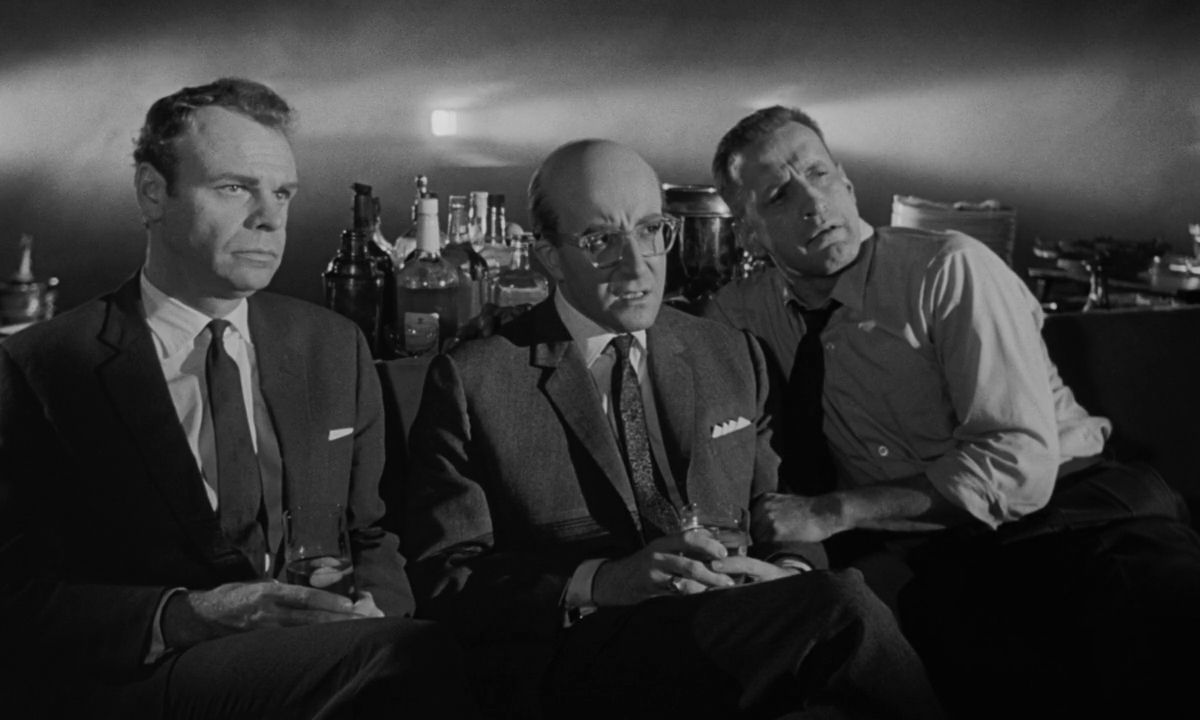
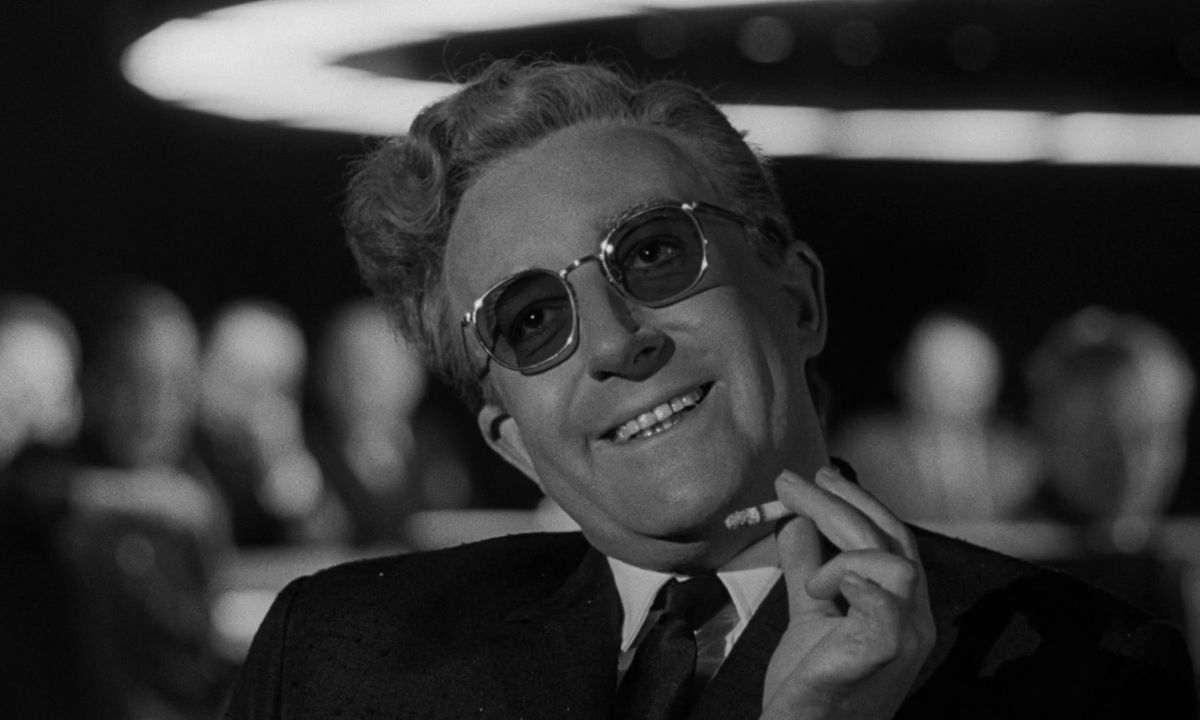
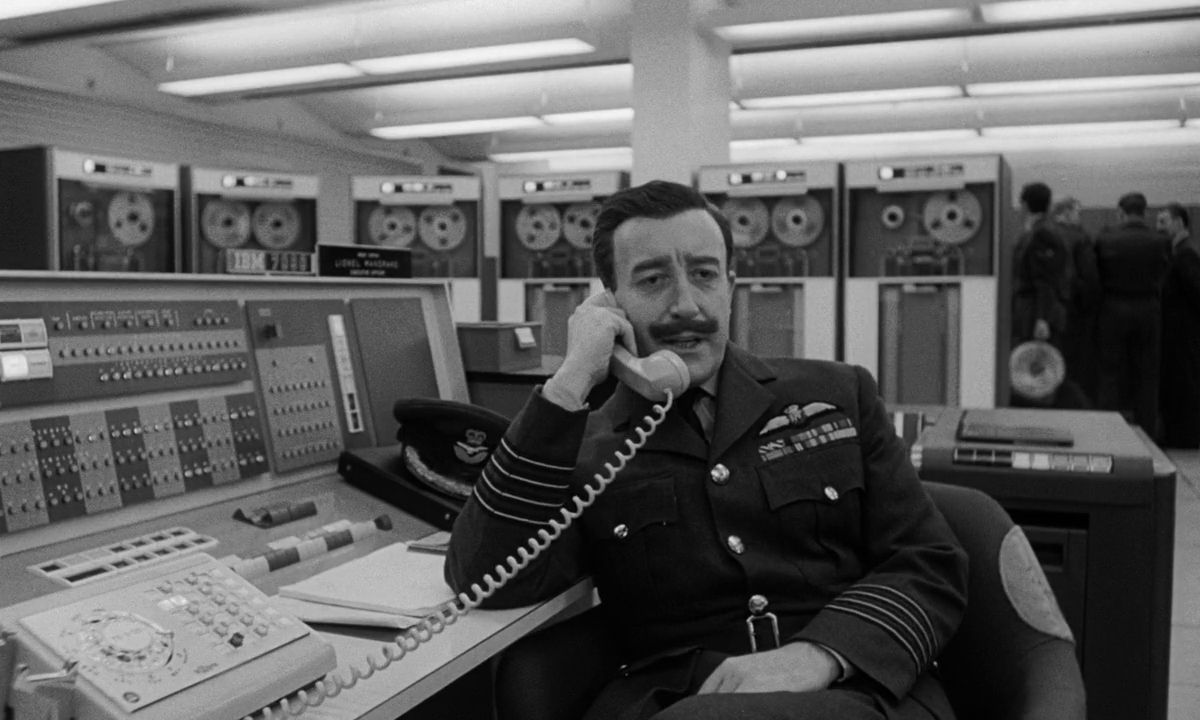
Peter Sellers as the US President Muffley (left), Dr. Strangelove (center), and Group Captain Lionel Mandrake (Right). Dr. Strangelove, © 1964 Columbia Pictures
I think I enjoyed Peter Sellers' performances most of all. I didn't know this until after we finished the movie, but he played three different characters in the movie, and each were fantastic and unique. (This seems a bit dense in hindsight, but I legitimately though these were played by three different actors, and would have praised each of them!) I especially enjoyed Dr. Strangelove's whole "alien hand syndrome" outbursts, and his obsequious phone calls as US President Muffley.
President Muffley: [on the phone with Soviet Premier Dimitri Kissov] Well now, what happened is, uh, one of our base commanders, he had a sort of, well, he went a little funny in the head. You know. Just a little... funny. And uh, he went and did a silly thing. Well, I'll tell you what he did, he ordered his planes... to attack your country. Well, let me finish, Dmitri. Let me finish, Dmitri. Well, listen, how do you think I feel about it? Can you imagine how I feel about it, Dmitri? Why do you think I'm calling you? Just to say hello? [sounding hurt] Of course I like to speak to you! Of course I like to say hello! Not now, but any time, Dmitri. I'm just calling up to tell you something terrible has happened. It's a friendly call. Of course it's a friendly call. Listen, if it wasn't friendly,... you probably wouldn't have even got it. They will not reach their targets for at least another hour.
[pause]
I'm sorry too, Dmitri. I'm very sorry. All right! You're sorrier than I am! But I am sorry as well. I am as sorry as you are Dmitri. Don't say that you are more sorry than I am, because I am capable of being just as sorry as you are. So we're both sorry, all right? All right.

Most of all, this movie was super funny. It was a sharp satire of the Cold War and the concept of mutually assured destruction (with fairly scary accuracy, despite military denials), and the delivery was straight-faced and perfect. In particular, George C. Scott (who we also saw in #82. Anatomy of a Murder (1959) and #64. The Hustler (1961)) played a ridiculously over-the-top character – it turns out that Kubrick tricked him into playing the character that way by telling him he was shooting "practice" takes, but then he used all of them in the final film. Apparently George C. Scott then vowed never to work with Kubrick again, but hey, it might have actually been worth it because of how funny it turned out.
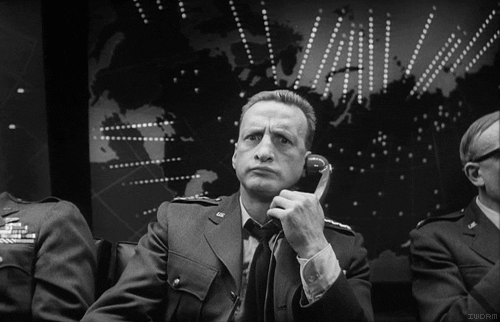
If you liked this, you should check out our next post in the series where we watch movies #11-15.
Want to see more posts about our challenge to watch the top 100 highest-rated movies of all time? Check out the tag #top-100-highest-rated-movies, and you should also sign up for my newsletter (it's free!) to get automatically notified when I make new posts in the series.